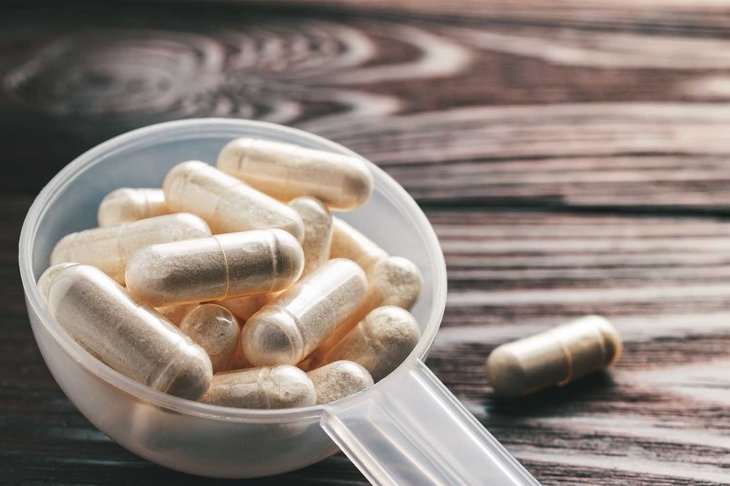
Have you heard of chondroitin? It’s a supplement that’s currently the talk of the arthritis world. If your joints ache—whether from arthritis or otherwise—you need to know about chondroitin. You may be surprised at how beneficial it can be!
01
What is chondroitin?

Chondroitin is found in cartilage within our bodies. As a supplement, it can be manufactured from animal sources, while vegetarian forms can be made in a lab. Primarily, chondroitin is used to treat inflammatory arthritis and osteoarthritis. Among US adults, it’s estimated that nearly 27 million people have clinical osteoarthritis and 1.28 to 1.36 million people have inflammatory arthritis.
02
What are the benefits of chondroitin?

Both inflammatory arthritis and osteoarthritis can result in joint pain, stiffness, and decreased range of motion. That’s where chondroitin comes in. Chondroitin has not only been linked to the protection of the cartilage, but also to the surrounding bones and membranes (the main structures of the joints).
03
Cartilage and joint protection

Chondroitin protects joints by stimulating the construction of new cartilage and synovial fluid (the liquid that lubricates your joints). Chondroitin is also anti-inflammatory, so it reduces inflammation in the cartilage as well.5 With this one-two punch, chondroitin can slow the progression of cartilage destruction and boost regeneration of joint structure for both arthritis and osteoarthritis.
04
Pain relief

Interestingly, chondroitin alone—as opposed to paired with glucosamine—has been shown to have a greater effect on improving pain and stiffness when compared to a placebo. One study found significant pain relief in participants who took chondroitin and reported “statistically significant and clinically meaningful” better pain scores on a scale of 1 to 100 than those treated with a placebo. Plus, chondroitin showed a lower risk of serious adverse effects than other medications or the placebo.
05
Anti-inflammatory

Taking chondroitin, when paired with glucosamine, may even lower your risk of death from certain causes. This is likely thanks in large part to their anti-inflammatory properties.Anti-inflammatory properties help address chronic inflammation and its complications. For example, chronic inflammation can lead to stroke, chronic respiratory diseases, heart disorders, cancer, obesity, and diabetes. In one study, the anti-inflammatory properties and boost to the immune system resulted in lower overall mortality plus lower risk of cardiovascular-related death.
06
Wound healing

Chondroitin is versatile—it may even aid wound healing and skin grafting. In a study done with skin grafts on mice, researchers found that applying a gel made from chondroitin and hyaluronic acid helped the graft heal more quickly than those mice without. While more studies are needed, chondroitin offers amazing potential when considering the positive impact these findings could have for burn patients.
07
What should you consider before taking chondroitin?

While there have been no recorded severe reactions or overdoses in clinical trials, you never know how adding a new supplement to your routine will affect you. This is especially true if you’re currently taking any other medications or supplements. Always talk to your doctor about potential interactions.
08
How do you take chondroitin?

Chondroitin is an over-the-counter supplement you should be able to find at your local health food store. It comes in both liquid and pill form, with the typical recommended daily dose ranging from about 800-2000 mg. Research shows that taking a chondroitin supplement for at least six months helps to benefit from its full effects. Taking it for up to two years has been shown to slow the progression of osteoarthritis. It also seems to work best in people who have more severe pain than those with mild or moderate pain.
09
Related conditions: osteoarthritis
 Osteoarthritis is caused by the gradual wearing down of the cartilage between your joints. It can be due to aging, repetitive use of the joints, genetics, injury, or obesity.Substances, like chondroitin, that appear to alter the course of osteoarthritis, are called “disease-modifying osteoarthritis drugs.”
Osteoarthritis is caused by the gradual wearing down of the cartilage between your joints. It can be due to aging, repetitive use of the joints, genetics, injury, or obesity.Substances, like chondroitin, that appear to alter the course of osteoarthritis, are called “disease-modifying osteoarthritis drugs.”
10
Related conditions: inflammatory arthritis

Inflammatory arthritis, on the other hand (if you’ll excuse the pun), is caused by inflammation of the joints. This type of arthritis can be due to autoimmune responses, infections, and general inflammation of the body.













